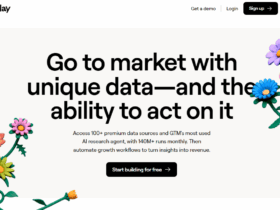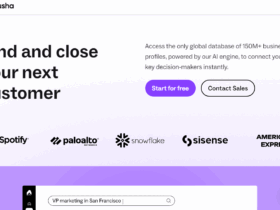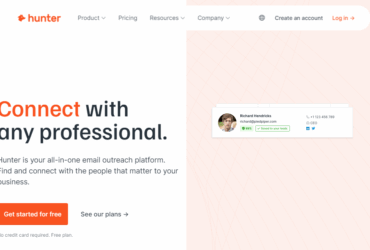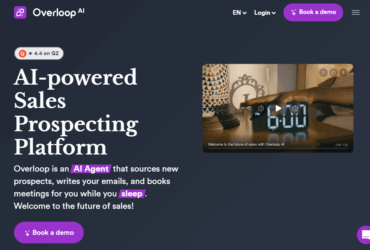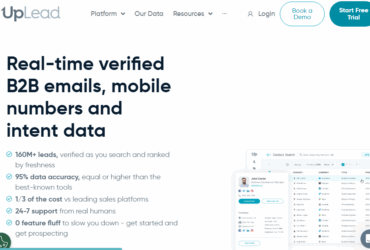Yo, fellow marketers and influencers! If you’ve been living under a rock (or just really vibing with Lolly), you might be curious about what other influencer marketing platforms are out there. Lucky for you, I’ve got the deets on 29 awesome Lolly alternatives for 2025 that’ll help you take your influencer campaigns to the next level. From killer features to pricing insights, I’ve got you covered! Let’s dive into these platforms and figure out which one is your perfect match.
1. Mavrck
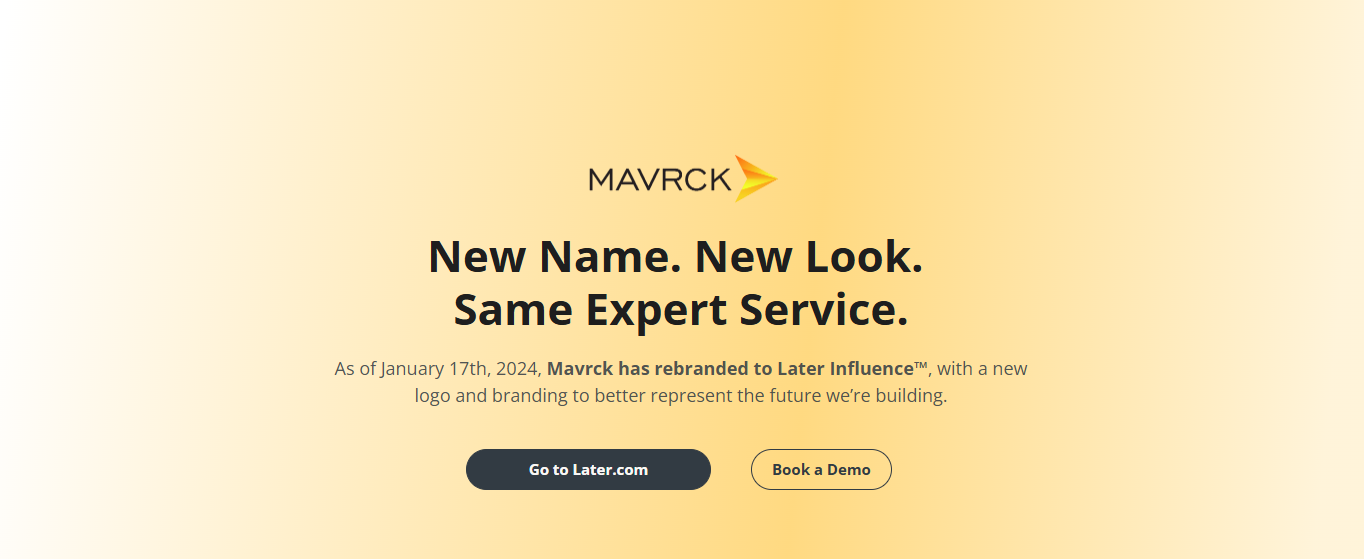
Alright, first up, we’ve got Mavrck. This platform is pretty much the cool kid on the block for influencer marketing, and it’s no surprise why—it’s packed with features!
What I Loved:
-
Comprehensive Campaign Management: Mavrck doesn’t just stop at connecting you with influencers—it helps you manage every stage of the campaign, from discovery to reporting. Major win!
-
Flexibility: You can work with micro-influencers all the way up to celebrities. So no matter your budget, Mavrck has options.
-
Advanced Analytics: Data nerds will love the insights this platform provides. It tracks ROI, engagement rates, and even sentiment analysis.
What I Didn’t Like:
-
Complex Setup: It takes a little time to get used to the interface. The features are all there, but you need to spend a bit of time learning how to use them.
-
Expensive: For smaller brands or influencers, Mavrck can be pretty pricey.
Pricing:
-
$$$$: Not for the faint of heart, but if you’ve got the budget, this one’s a beast.
2. The Influencer Room
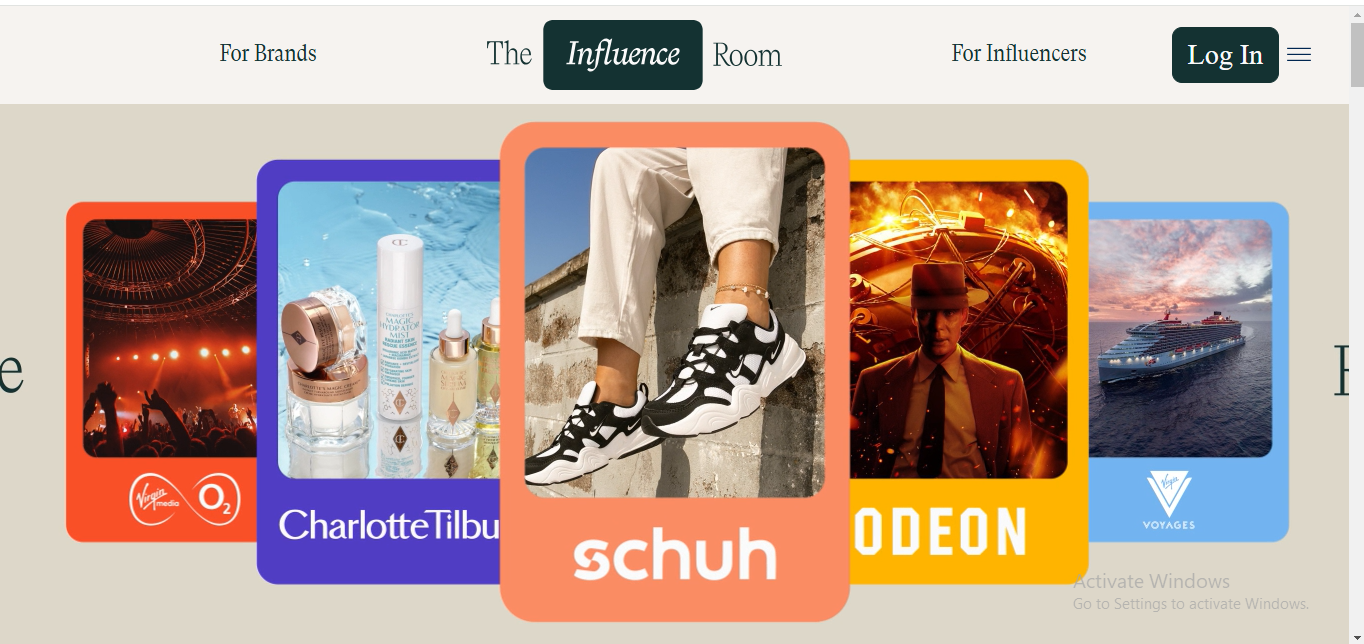
Next up, we’ve got The Influencer Room. This platform’s all about helping you create better, more authentic influencer partnerships.
What I Loved:
-
Personalized Matching: The influencer discovery process is on point. It focuses on making authentic matches, not just choosing anyone with a large following.
-
Great Support: The team behind this platform is super helpful and always there to guide you through campaigns.
What I Didn’t Like:
-
Limited Features: It’s not as feature-packed as some of the bigger players on this list. You don’t get as many analytics or management tools.
-
Smaller Influencer Pool: The platform has fewer influencers to choose from compared to others, but the quality is there.
Pricing:
-
$$: A more affordable option, making it great for small businesses or influencers just starting out.
3. Grin
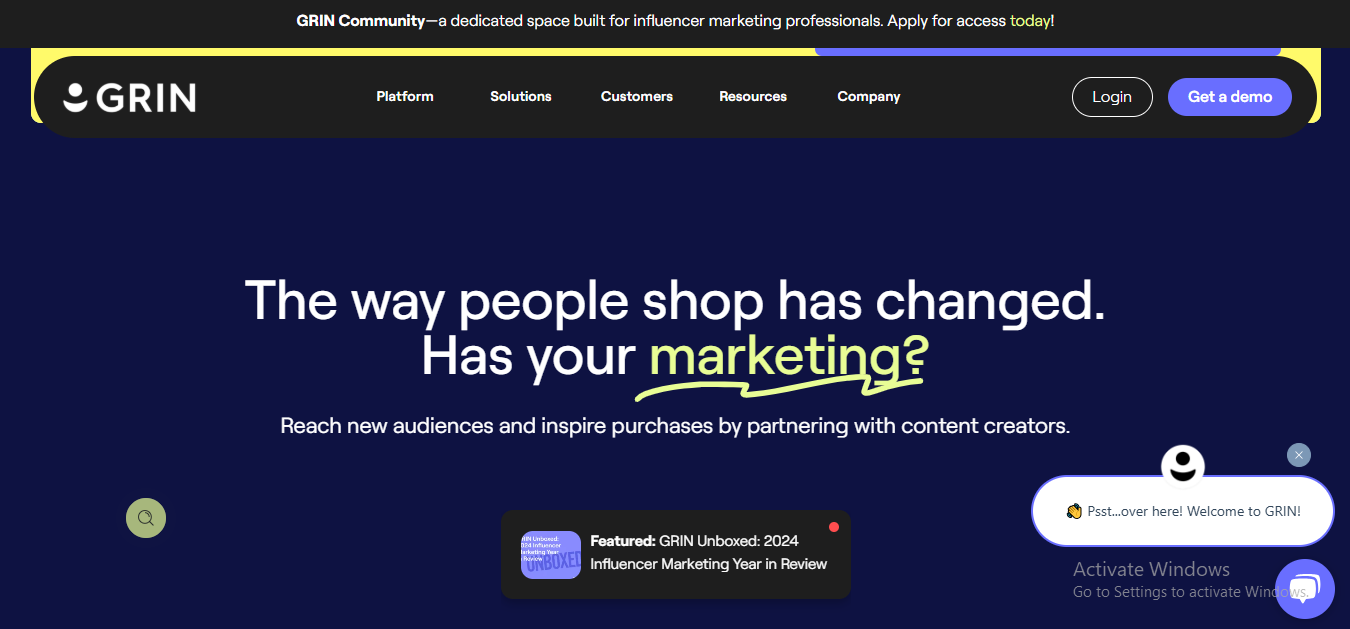
If you haven’t heard of Grin, you’re seriously missing out. This platform is all about streamlining your influencer marketing efforts.
What I Loved:
-
All-In-One Platform: Grin covers everything from influencer discovery to contract management and payment processing. It’s got it all.
-
E-Commerce Integration: If you run an online store, Grin makes it easy to integrate with platforms like Shopify, which is a major time-saver.
-
Customizable Campaigns: You can set your campaign goals and tweak everything to fit your brand’s needs.
What I Didn’t Like:
-
Price Tag: Grin’s pricing can be a little steep, especially for smaller businesses.
-
Learning Curve: While powerful, the platform has a bit of a learning curve. It takes time to figure out all the features.
Pricing:
-
$$$$: Definitely on the higher end of the spectrum, but worth it if you want to run seamless influencer campaigns.
4. Influencity
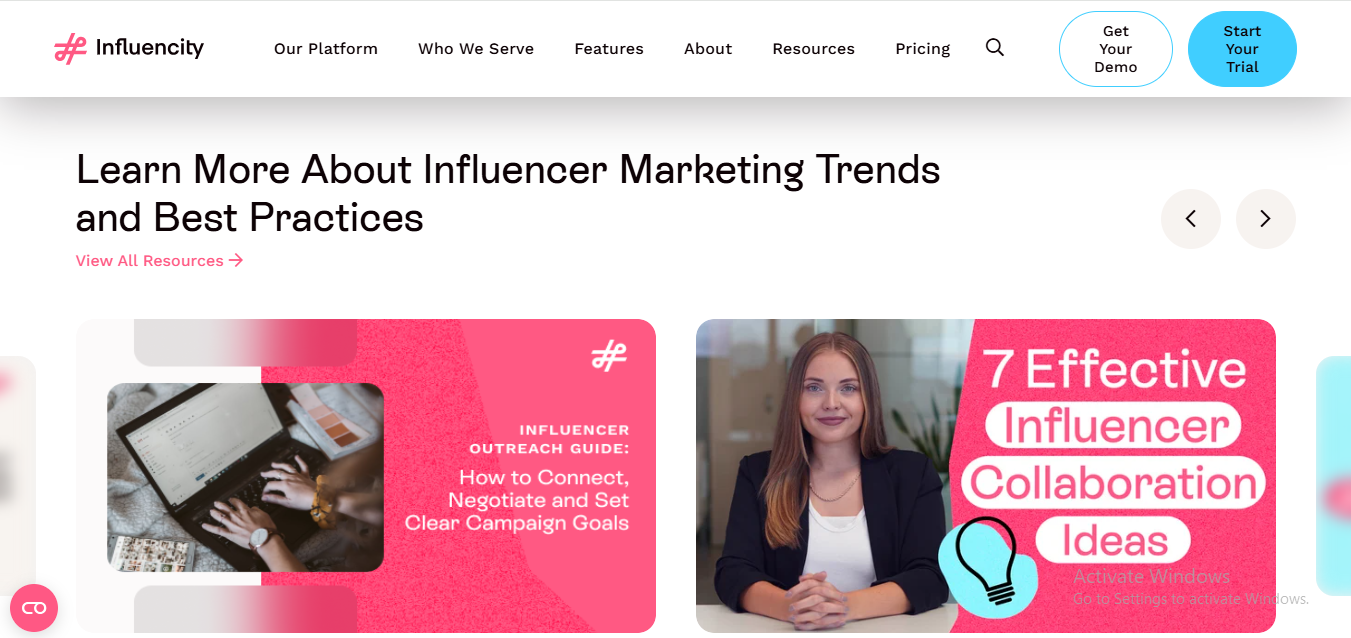
Now, let’s talk about Influencity—a platform that’s great for brands looking for a high level of influencer insight.
What I Loved:
-
Analytics Galore: This platform gives you deep insights into influencer performance, audience demographics, and engagement rates. Perfect for data junkies!
-
Campaign Management: You can easily track your campaigns and monitor their success in real-time.
-
Customizable Search: If you’re looking for very specific types of influencers, Influencity’s search feature makes it easy to filter by niche, audience, and other factors.
What I Didn’t Like:
-
Interface Needs Some Work: The platform could use a little design refresh—sometimes it feels a bit cluttered.
-
Limited Integration: It’s not as integrated with other marketing tools as some other platforms.
Pricing:
-
$$$: A solid mid-range option with good features for the price.
5. Hashtag Paid
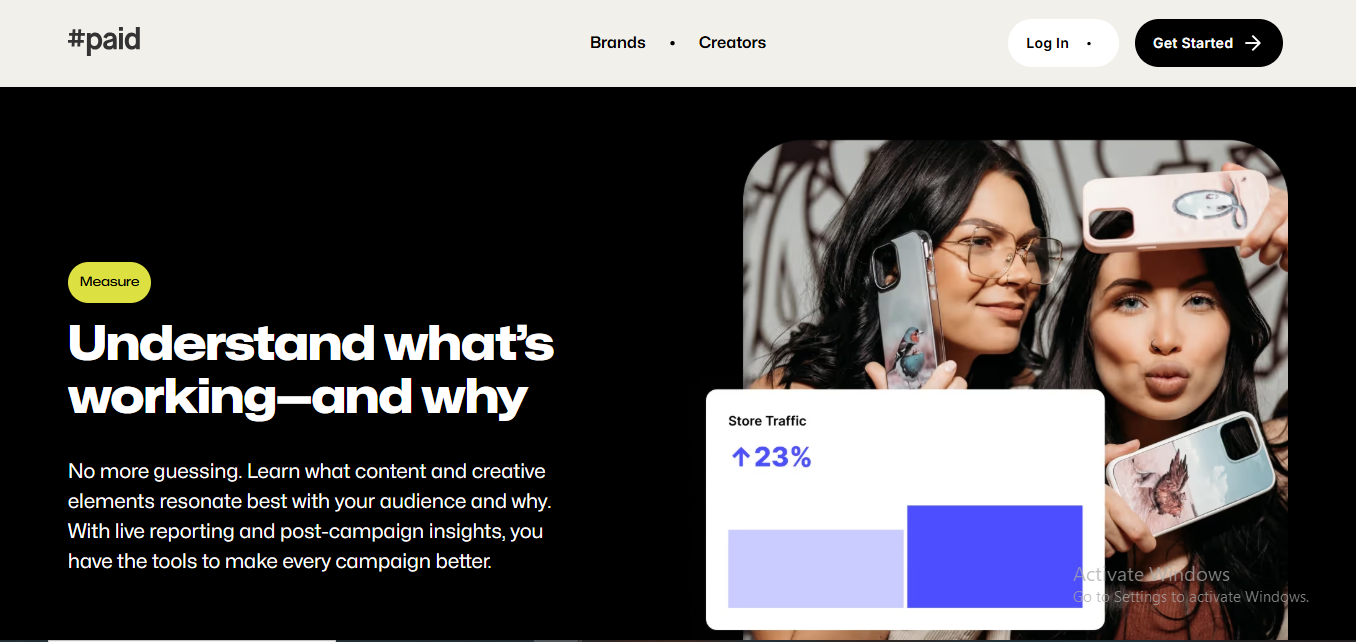
Hashtag Paid is another solid influencer platform with a focus on micro and macro influencer partnerships.
What I Loved:
-
Simplicity: The platform is easy to use, even for beginners in influencer marketing. You don’t have to be a pro to navigate it.
-
Fast Results: You can launch campaigns quickly and see results in real-time. It’s all about speed and efficiency.
What I Didn’t Like:
-
Limited Features: It doesn’t offer as many in-depth features as some of the other platforms, especially when it comes to campaign analytics.
-
Fewer Customization Options: You don’t have as much flexibility in terms of campaign customization.
Pricing:
-
$$: Affordable for most brands and influencers, but you get what you pay for in terms of features.
6. Lolly
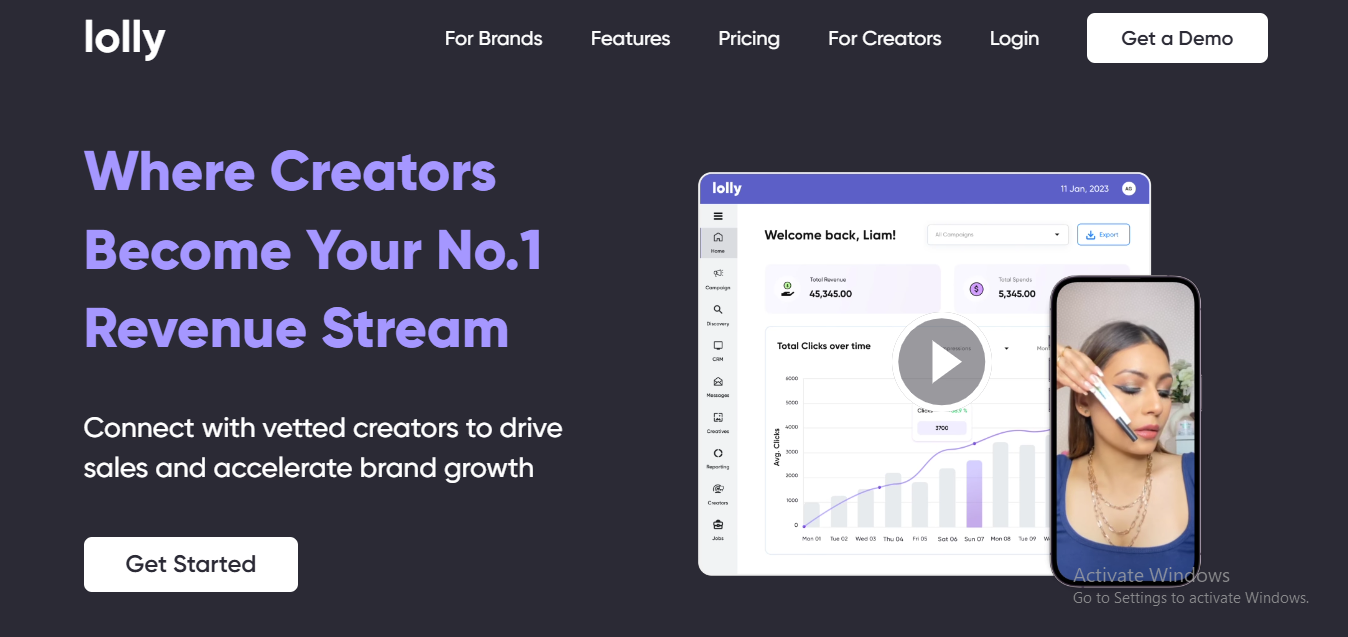
The platform we’re all familiar with—Lolly! It’s a solid player in the influencer space, but let’s see how it stacks up against the competition.
What I Loved:
-
Simple and Easy to Use: Lolly’s interface is clean and simple, making it easy to navigate even for those new to influencer marketing.
-
Great For Smaller Brands: It’s a more affordable option for smaller brands or influencers who want to dip their toes into influencer marketing.
What I Didn’t Like:
-
Limited Analytics: The platform doesn’t provide as many analytics or in-depth performance metrics compared to other tools.
-
Not as Many Influencers: Lolly’s influencer pool isn’t as large as some of the bigger platforms, so it might not have the perfect match for every campaign.
Pricing:
-
$$: A more budget-friendly choice, perfect for small businesses.
7. The Cirqle
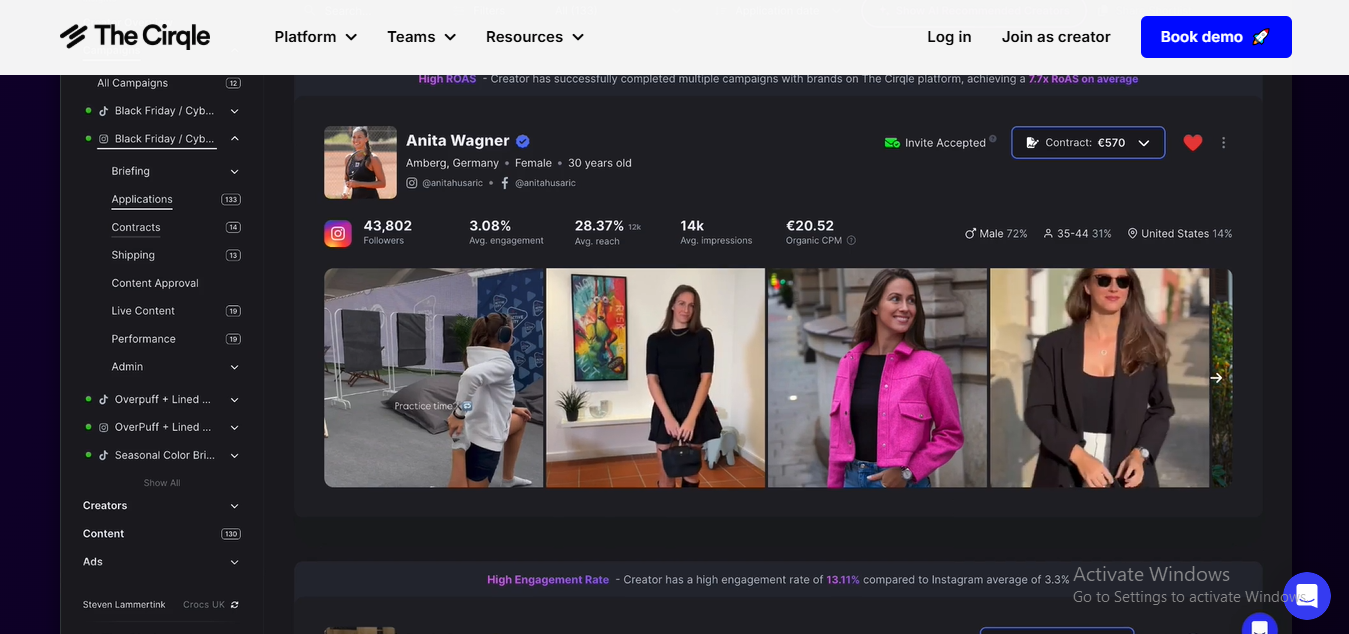
First up, we’ve got The Cirqle—and trust me, it’s all about connecting brands with the right influencers for some serious marketing magic.
What I Loved:
-
Smart Matching: The Cirqle uses data to match brands with influencers who have real audience engagement, so no fake followers here. Quality over quantity, baby!
-
Campaign Analytics: This platform gives you detailed campaign reports, so you know exactly what’s working.
What I Didn’t Like:
-
A Little Pricey: If you’re just starting out or running a small campaign, the cost can add up quickly.
-
Limited Influencer Pool: While the quality of influencers is high, the platform doesn’t have as many choices compared to some of the bigger platforms.
Pricing:
-
$$$: A solid choice for mid-sized businesses, but if you’re looking to get started on a budget, it might be a bit steep.
8. Popular Pays
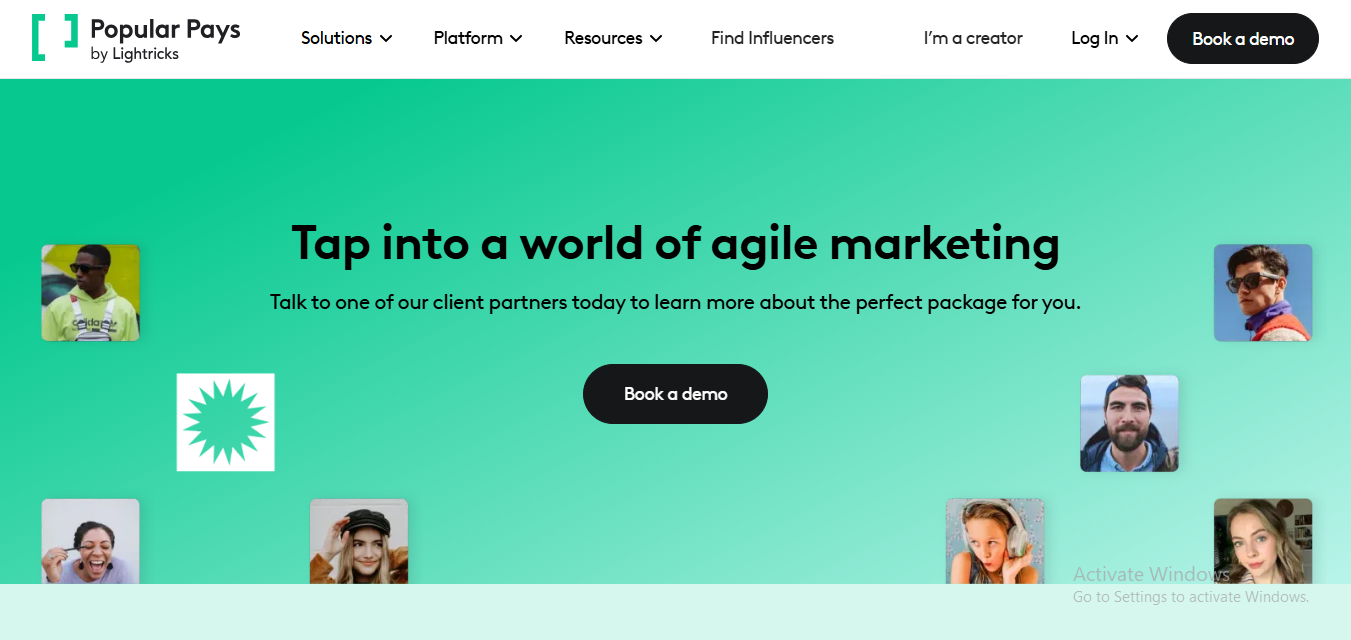
Popular Pays is up next, and it’s all about creating real partnerships with influencers. It’s got a pretty solid reputation for helping brands grow their presence.
What I Loved:
-
Great Flexibility: Whether you’re a small startup or a huge brand, Popular Pays lets you work with influencers at any scale.
-
Content Creation Focus: It’s not just about promoting products; it’s about creating compelling content that works.
What I Didn’t Like:
-
Interface Can Be Clunky: It’s not the easiest platform to navigate. The interface could use a little TLC to make it more user-friendly.
-
Higher Commission Fees: The commission structure could be better. You might end up paying more than expected for some campaigns.
Pricing:
-
$$$: If you’re looking for flexibility and are willing to pay a bit more for that, Popular Pays is a solid choice.
9. Collabstr
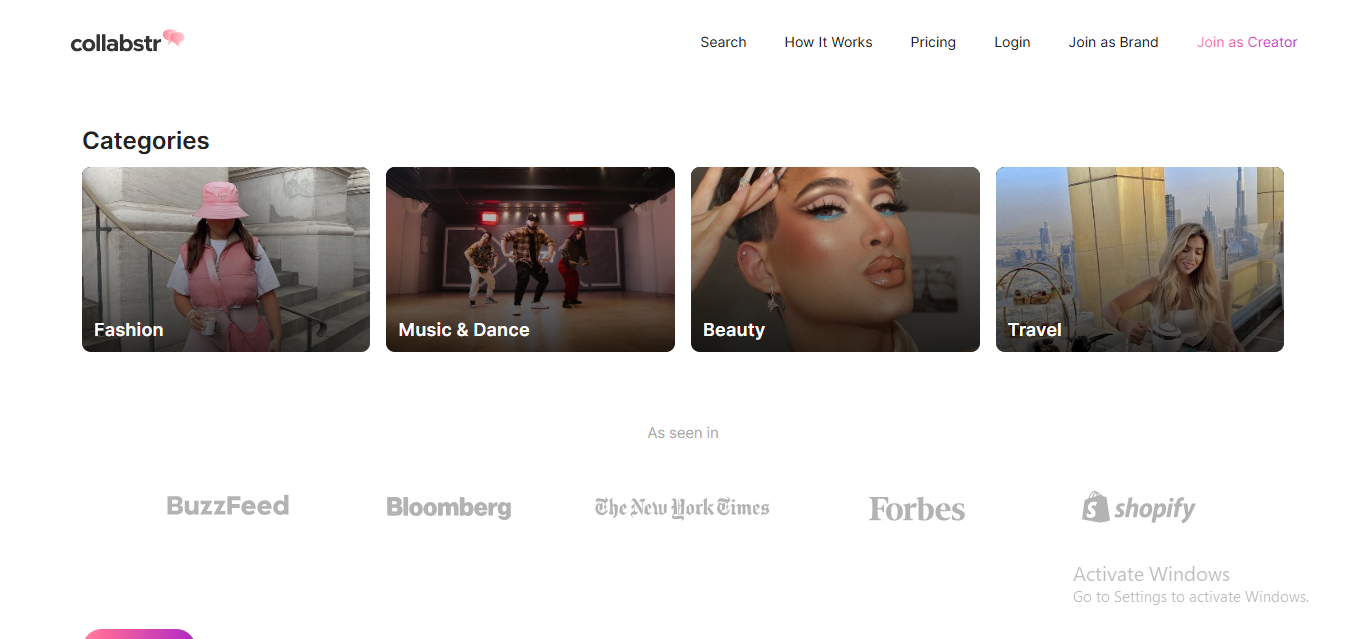
Next on the list is Collabstr—a platform that focuses on streamlining the influencer collaboration process.
What I Loved:
-
Simple Setup: No more complicated processes. Collabstr makes it super easy to find influencers, set up campaigns, and track performance.
-
Clear Pricing: It’s straightforward with no hidden fees. You know exactly what you’re paying for, which is a huge win.
What I Didn’t Like:
-
Limited Influencer Pool: While the platform is super easy to use, it doesn’t have the massive selection of influencers that some others offer.
-
Fewer Campaign Tools: Compared to other platforms, the tools to manage campaigns are a bit more basic.
Pricing:
-
$$: A budget-friendly option that works well for small businesses or those just getting into influencer marketing.
10. Kolsquare
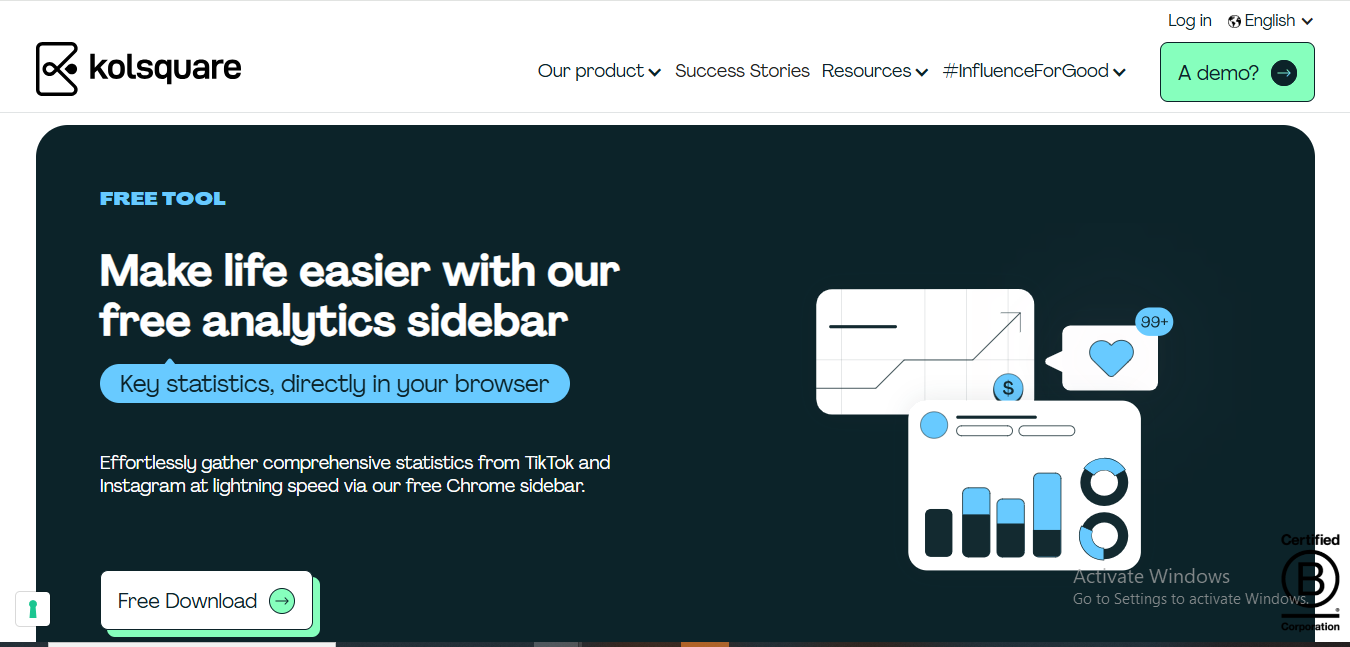
Kolsquare is one of the more innovative platforms, focusing on providing a sophisticated solution for influencer marketing with detailed insights.
What I Loved:
-
Advanced Analytics: Kolsquare gives you a ton of data, so you can fine-tune your campaigns and really see what’s working.
-
Big Influencer Database: With a large pool of influencers, you’re sure to find someone who aligns with your brand.
What I Didn’t Like:
-
Complex Interface: The platform is a bit on the complicated side, so you’ll need some time to get used to all the features.
-
High Costs: If you want to unlock all the features, it can get pretty expensive.
Pricing:
-
$$$$: A premium choice for bigger brands that need detailed reporting and a wide range of influencers.
11. Captiv8
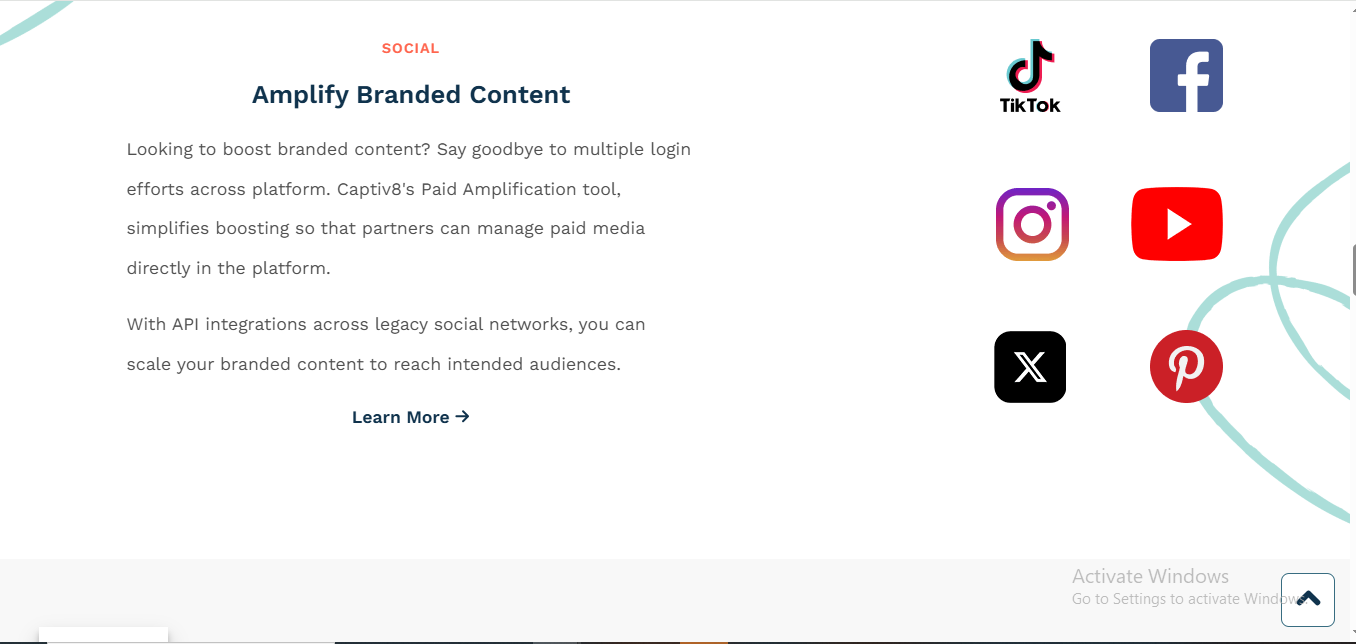
Captiv8 is a strong contender if you’re looking to maximize the ROI of your influencer marketing campaigns. It’s a platform designed for brands who want to get serious about their influencer strategy.
What I Loved:
-
Strong Analytics and Reporting: Captiv8 delivers some of the most detailed insights I’ve seen, so you’ll know exactly how each campaign is performing.
-
Influencer Vetting: They do a thorough job of vetting influencers, which helps weed out any fake accounts or non-engaged followers.
What I Didn’t Like:
-
User Interface Needs Work: It’s not the most intuitive, especially if you’re a first-time user. But once you get the hang of it, it’s solid.
-
Expensive: Like most premium platforms, it’s on the pricier side.
Pricing:
-
$$$$: Expect to pay a little more here, but the features are top-notch, especially if you’re looking for high-quality analytics.
12. Aspire.io
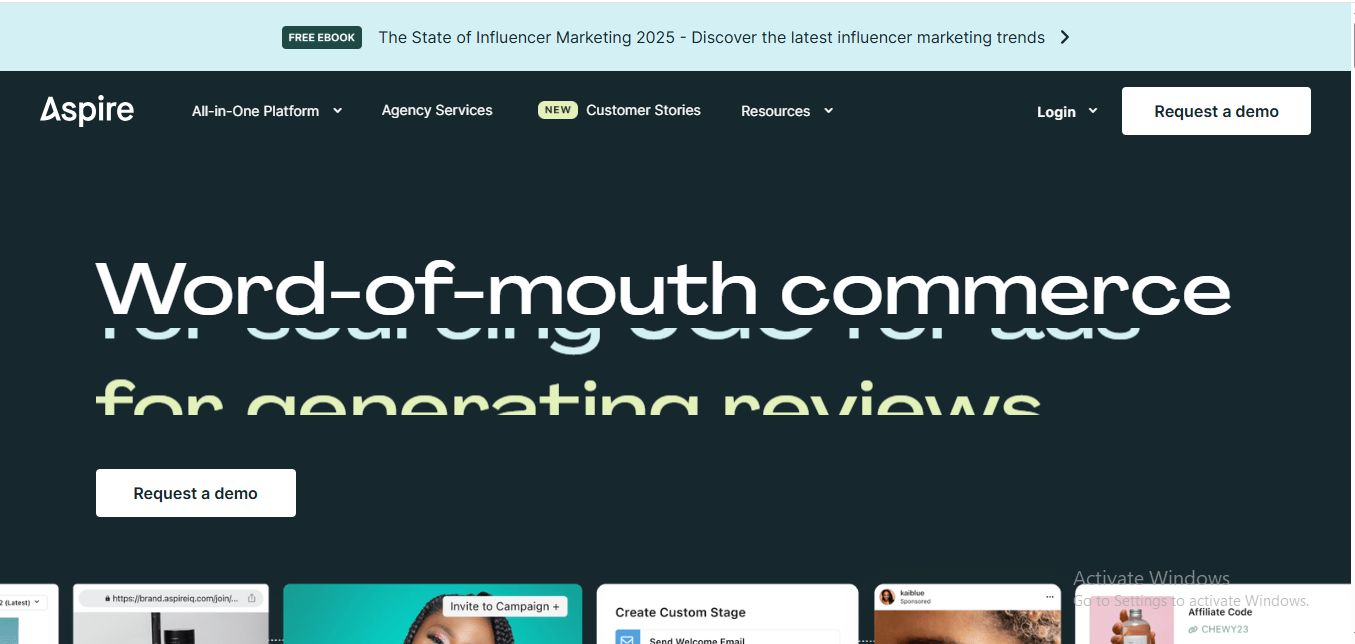
Last but definitely not least, Aspire.io rounds out our list as a fantastic tool for managing influencer campaigns with ease.
What I Loved:
-
Intuitive and User-Friendly: Aspire.io has one of the cleanest, easiest-to-navigate interfaces in the industry, which is great for beginners.
-
End-to-End Campaign Management: You can handle everything from influencer discovery to campaign management without switching tools. Super convenient.
What I Didn’t Like:
-
Limited Customization: While it’s easy to use, it doesn’t offer as much customization for campaign structure as some of the more robust platforms.
-
Fewer Influencer Options: Compared to other platforms, Aspire.io doesn’t have the largest pool of influencers.
Pricing:
-
$$$: A solid mid-range option, ideal for brands that want simplicity without compromising too much on features.
13. Tribe Group
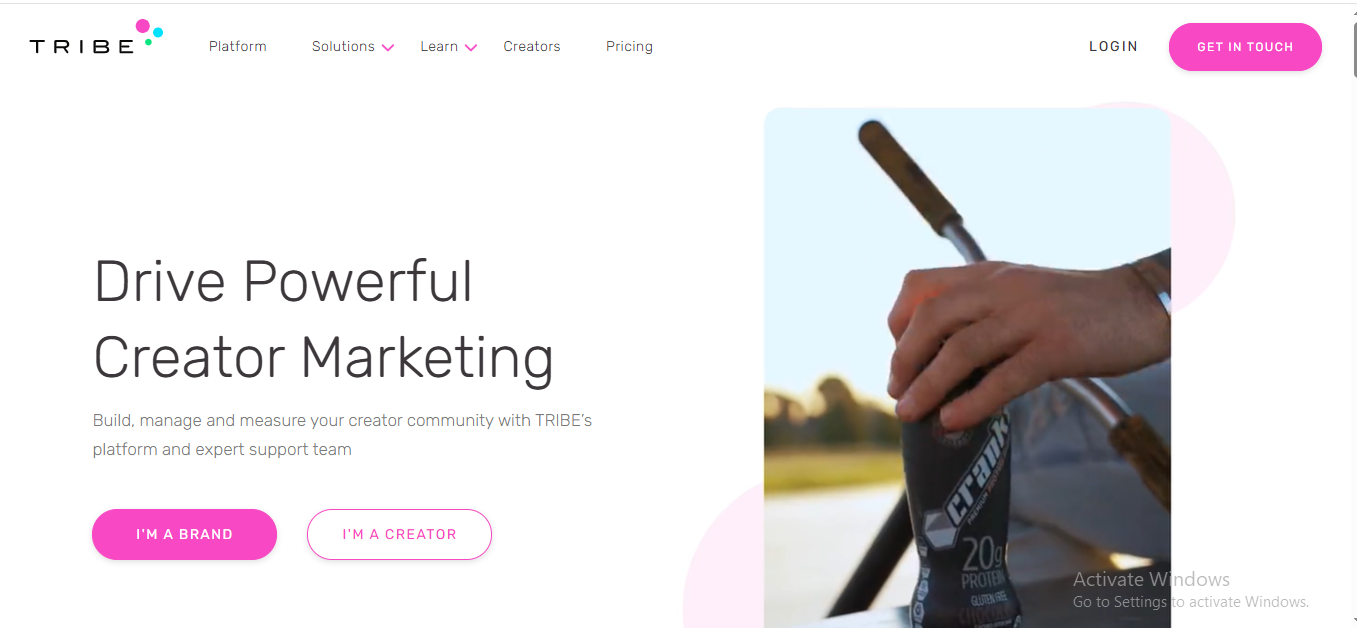
Starting off strong with Tribe Group, this platform is all about empowering brands with influencer partnerships. They make it easy to find micro and macro influencers who vibe with your brand.
What I Loved:
-
Micro-Influencer Focus: Tribe really excels at finding those hidden gems. If you’re looking to partner with influencers who have a more niche, loyal following, this is your platform.
-
Easy to Use: I love how simple it is to set up campaigns and start collaborations. Everything is intuitive, so you can get things rolling quickly.
What I Didn’t Like:
-
Limited Reach for Larger Brands: If you’re aiming for a big influencer campaign, you might find Tribe’s influencer pool a bit on the smaller side.
-
Higher Cost for Big Campaigns: It’s great for micro-influencers, but if you want more star power, it can get pricey.
Pricing:
-
$$: A solid option for brands looking to grow organically with micro-influencers.
14. Braze
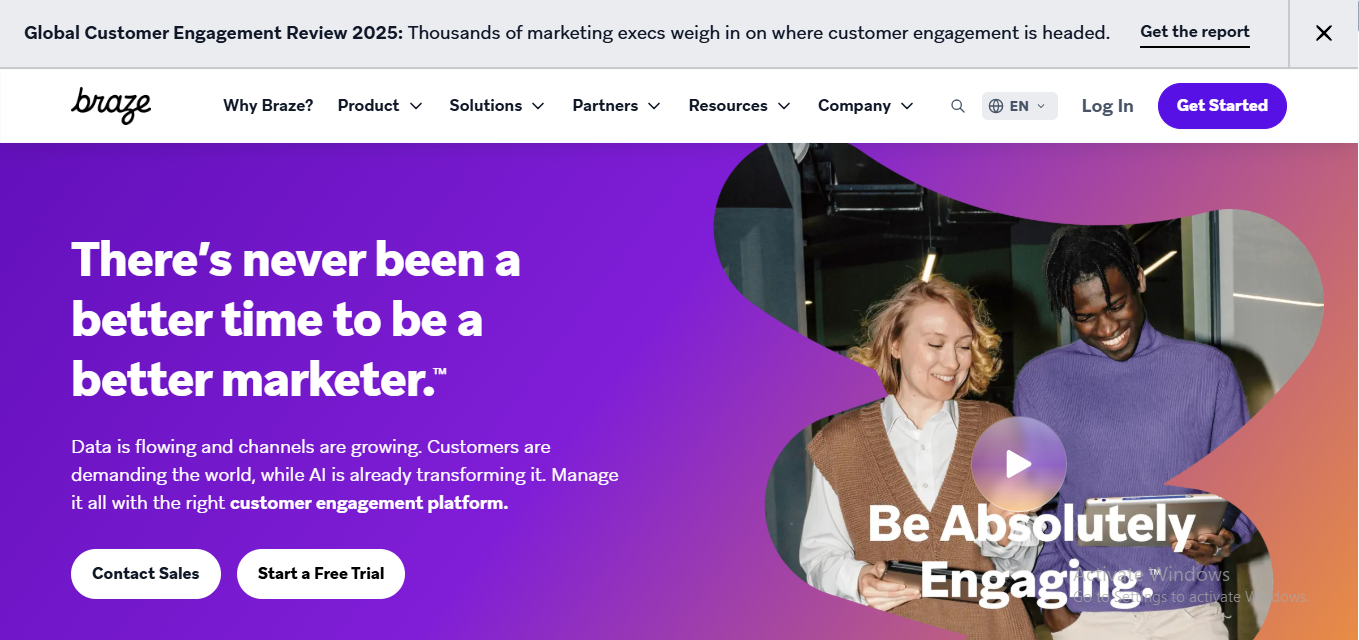
Next up, we’ve got Braze, a platform that takes customer engagement to the next level. While it’s more on the CRM side, it still offers some cool influencer marketing tools that can boost your campaigns.
What I Loved:
-
Customer-Centric Campaigns: Braze is perfect for businesses that want to integrate their influencer campaigns with customer engagement strategies. If you’re all about customer loyalty, this is your go-to.
-
Comprehensive Analytics: The platform’s reporting features are top-notch, giving you insights into both customer behavior and influencer performance.
What I Didn’t Like:
-
Not Focused Solely on Influencers: It’s a great platform, but it’s not 100% dedicated to influencer marketing. You’ll need to juggle between customer and influencer data.
-
Learning Curve: Because it has a broad set of features, it can take a little time to get the hang of it.
Pricing:
-
$$$$: It’s on the more expensive side, but if you’re in for a full-suite marketing solution, Braze could be worth it.
15. IZEA
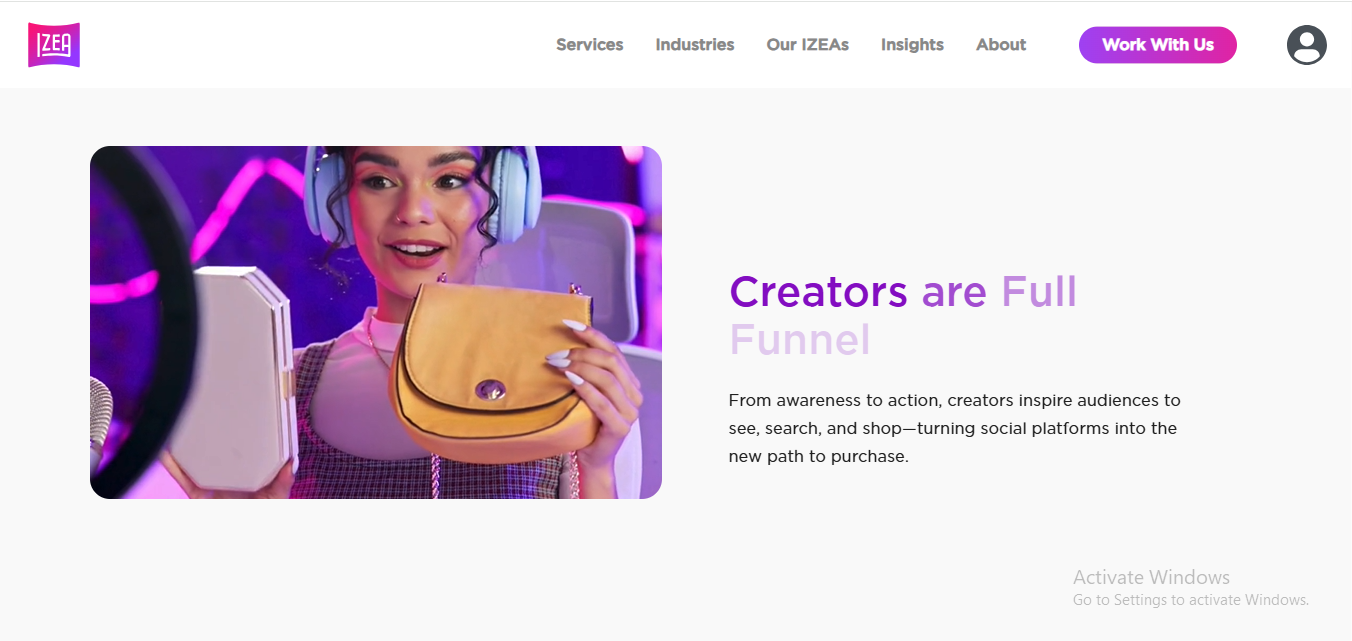
IZEA is one of the big dogs in the influencer marketing world. It’s been around for a while, and for good reason—it works.
What I Loved:
-
Huge Influencer Pool: You’ll find influencers in every niche here. Whether you’re in fashion, tech, or beauty, IZEA has you covered.
-
Comprehensive Tools: From influencer search to campaign tracking, this platform offers a full-service approach. You can manage everything in one place.
What I Didn’t Like:
-
High Fees: With great power comes a hefty price tag. If you’re on a tight budget, IZEA can get expensive.
-
Complicated for Newbies: The platform isn’t the most beginner-friendly. It might take some time to get used to all the features.
Pricing:
-
$$$$: A premium choice, best suited for big brands or those with a decent influencer marketing budget.
16. Insense Pro
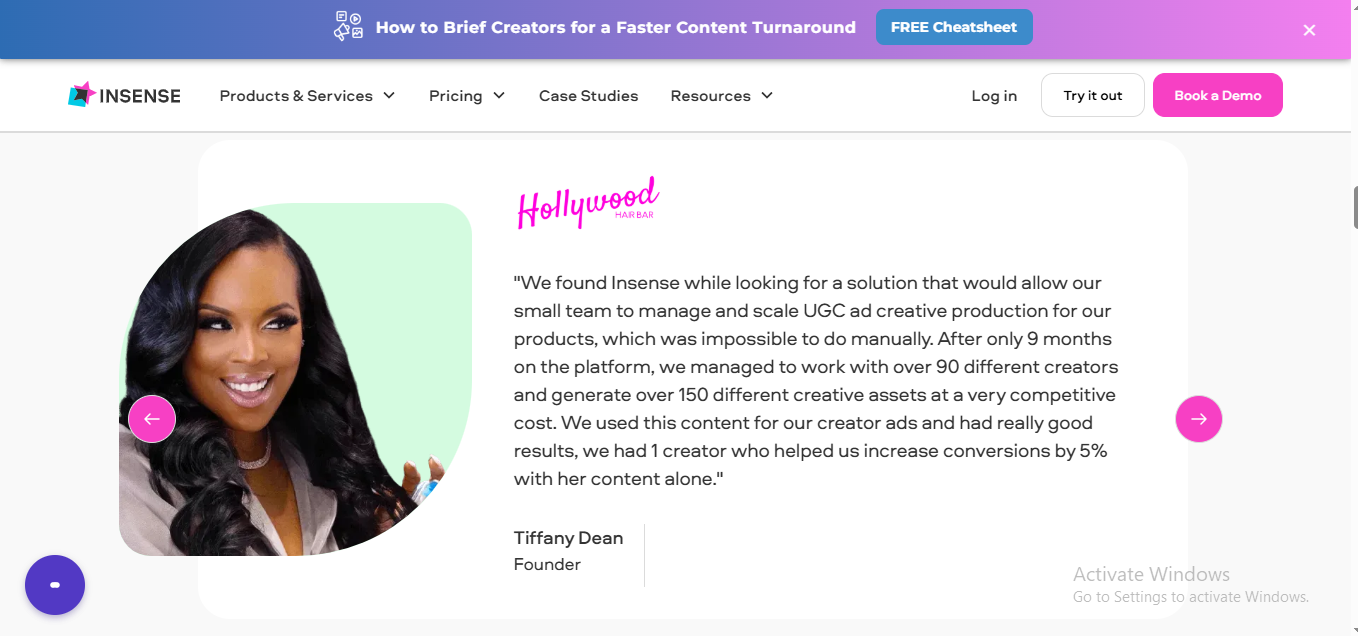
Insense Pro is for those who want to tap into the power of content creators and run highly creative campaigns. It’s all about collaboration and producing content that stands out.
What I Loved:
-
Creator-Driven Campaigns: Insense focuses on authentic, creator-driven content. You’re not just getting sponsored posts—you’re getting creative, high-quality content that resonates with audiences.
-
Super Simple Workflow: Setting up campaigns is quick and easy. You’ll be up and running in no time.
What I Didn’t Like:
-
Limited Influencer Choices: While the platform has a solid base of creators, it’s not as expansive as others, especially if you’re looking for high-profile influencers.
-
Not as Robust for Reporting: If you love digging into campaign metrics, you might find Insense lacking in detailed reporting features.
Pricing:
-
$$: A great choice for brands looking to create unique content without breaking the bank.
17. Influence.co
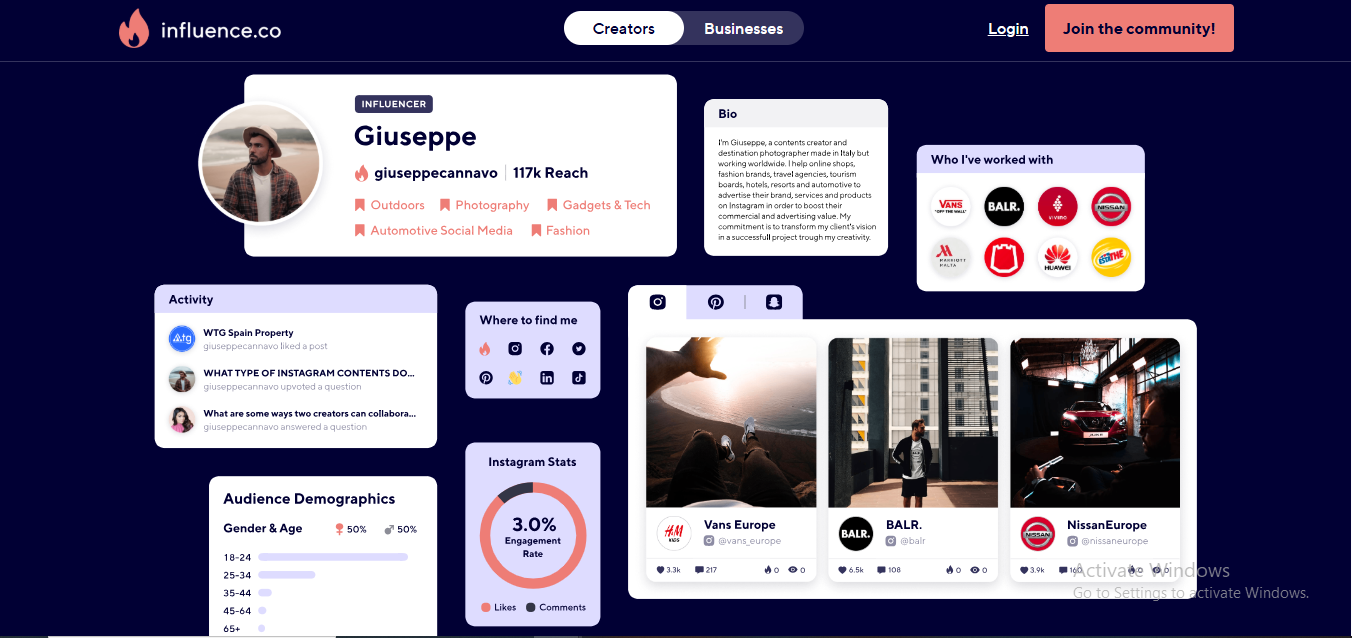
Influence.co is all about helping you manage your influencer relationships and building long-term partnerships. It’s got a bit of a social media vibe with its community-focused features.
What I Loved:
-
Community-Oriented: You can really build connections here. Influence.co has a great community of influencers and brands, so you can find long-term partners.
-
Portfolio Features: Influencers can create portfolios, which makes it easier to find the right match for your brand.
What I Didn’t Like:
-
Limited Campaign Tools: While the community aspect is great, the actual campaign tools aren’t as advanced as some other platforms.
-
Not the Best for Big Campaigns: If you need to scale fast, Influence.co might not be the right choice for you.
Pricing:
-
$$: Affordable for small businesses and those looking to build solid influencer relationships.
18. Influencer.com
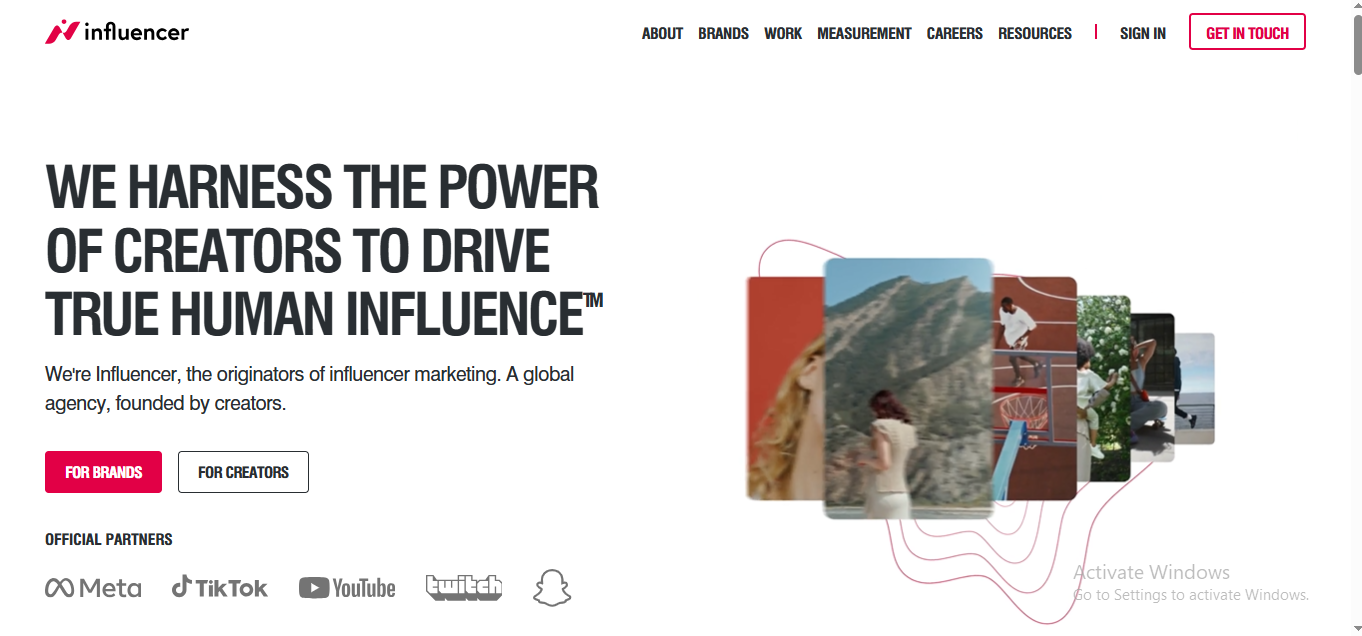
Lastly, we’ve got Influencer.com, a platform focused on helping you find and collaborate with top-tier influencers.
What I Loved:
-
Incredible Influencer Database: Whether you’re looking for nano, micro, or macro influencers, this platform has it all. You can find influencers across all niches.
-
Easy Campaign Management: Influencer.com makes it simple to track your campaigns, from outreach to performance metrics.
What I Didn’t Like:
-
Expensive for Small Budgets: Like IZEA, Influencer.com can be on the pricier side if you’re working with a smaller budget.
-
Not as Many Customizable Features: It’s a bit rigid in terms of campaign structure. You might want more flexibility depending on your needs.
Pricing:
-
$$$$: Another premium option, perfect for larger brands or those who need high-end influencer tools.
19. Later
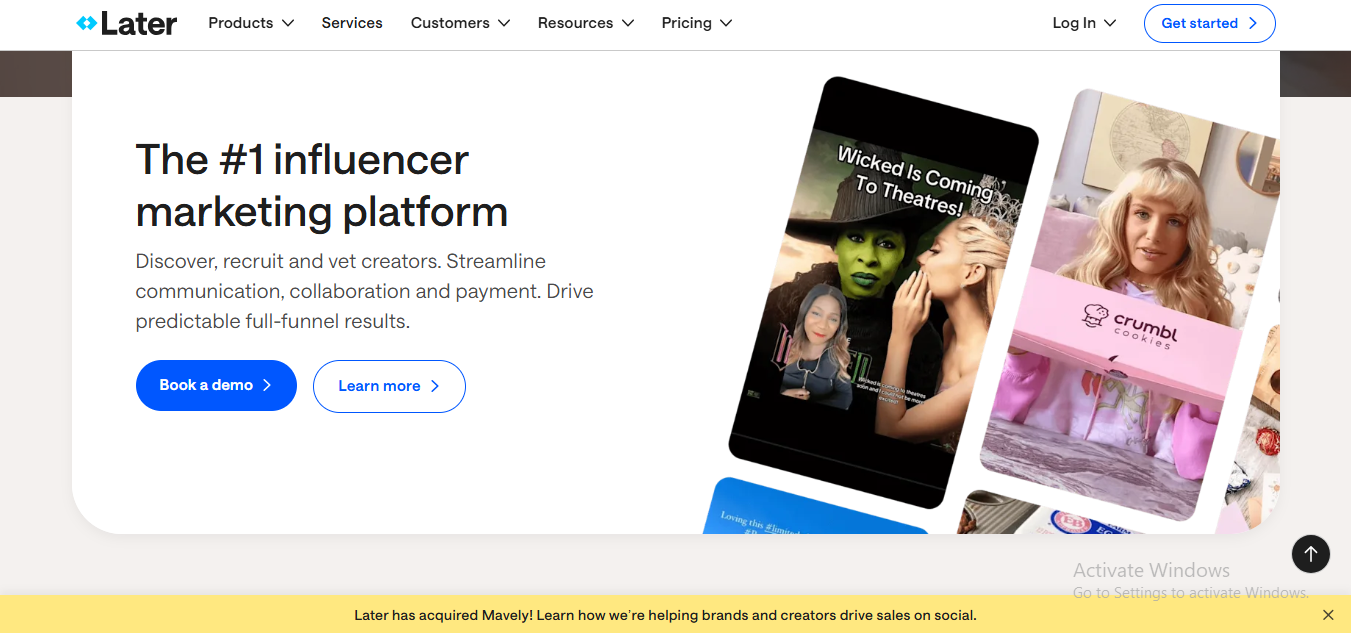
If you’re a social media manager or content creator looking to plan out your posts and track influencer campaigns all in one go, Later is your new best friend.
What I Loved:
-
Super Easy to Use: I absolutely loved how smooth the platform is. You can drag and drop posts onto your content calendar, making scheduling a breeze.
-
Instagram-Focused: Later’s features are perfect if you’re all about Instagram. It lets you track hashtags, manage collaborations, and schedule posts without any hassle.
What I Didn’t Like:
-
Not Much Beyond Instagram: If you’re looking to expand your reach on other social platforms like TikTok or YouTube, Later might feel a bit too niche.
-
Basic Analytics: While the scheduling tools are great, the analytics are a bit basic. You won’t get super detailed insights compared to other platforms.
Pricing:
-
$$: A solid mid-range option, perfect for social media managers or influencers who want an easy, no-fuss scheduling tool.
20. Shout Agency
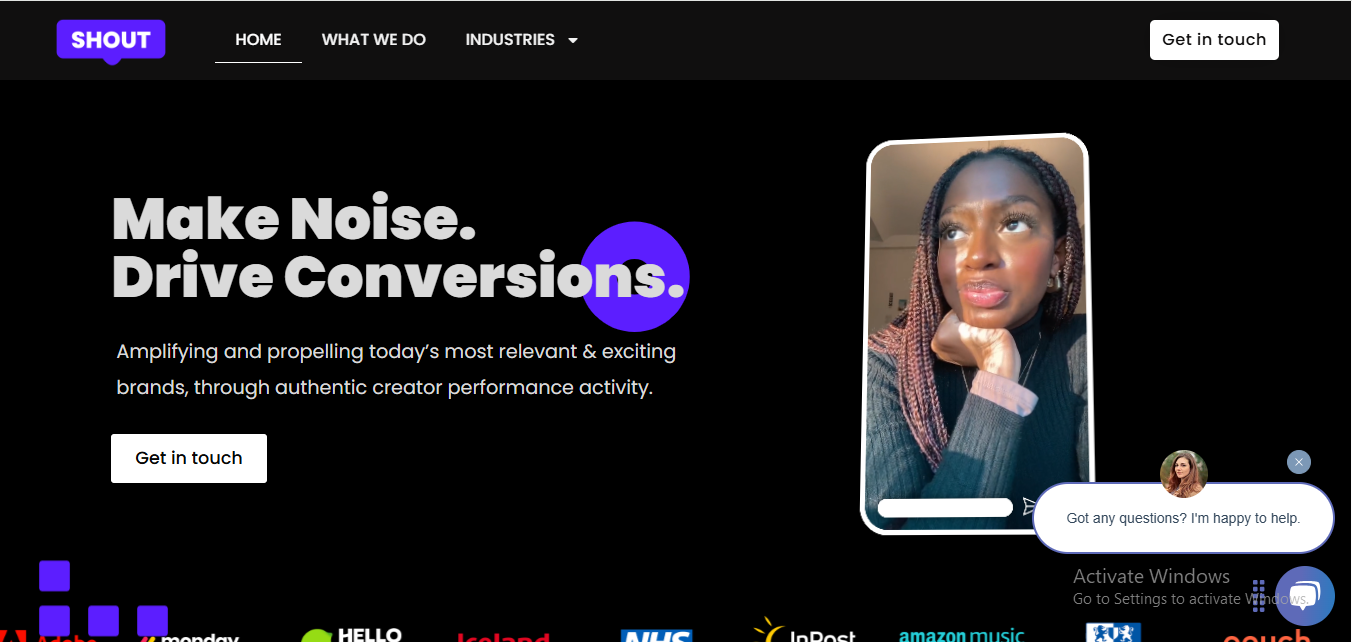
Shout Agency is a full-service influencer marketing agency that helps brands connect with influencers across various niches.
What I Loved:
-
Tailored Campaigns: I love that they work closely with you to tailor each campaign to your brand’s voice and audience. It’s like having a personal influencer strategist in your corner.
-
Huge Influencer Network: They have an extensive network of influencers across all niches. Whatever your brand needs, they’ll find the right fit.
What I Didn’t Like:
-
Not Very DIY: If you’re looking for something hands-on where you control every detail, Shout Agency might not be for you. It’s more agency-managed, so there’s less flexibility.
-
On the Expensive Side: The bespoke services come with a premium price tag. Smaller brands might find this a bit out of their budget.
Pricing:
-
$$$$: Definitely more for bigger brands or those with a solid budget who need a tailored influencer marketing approach.
21. Klear
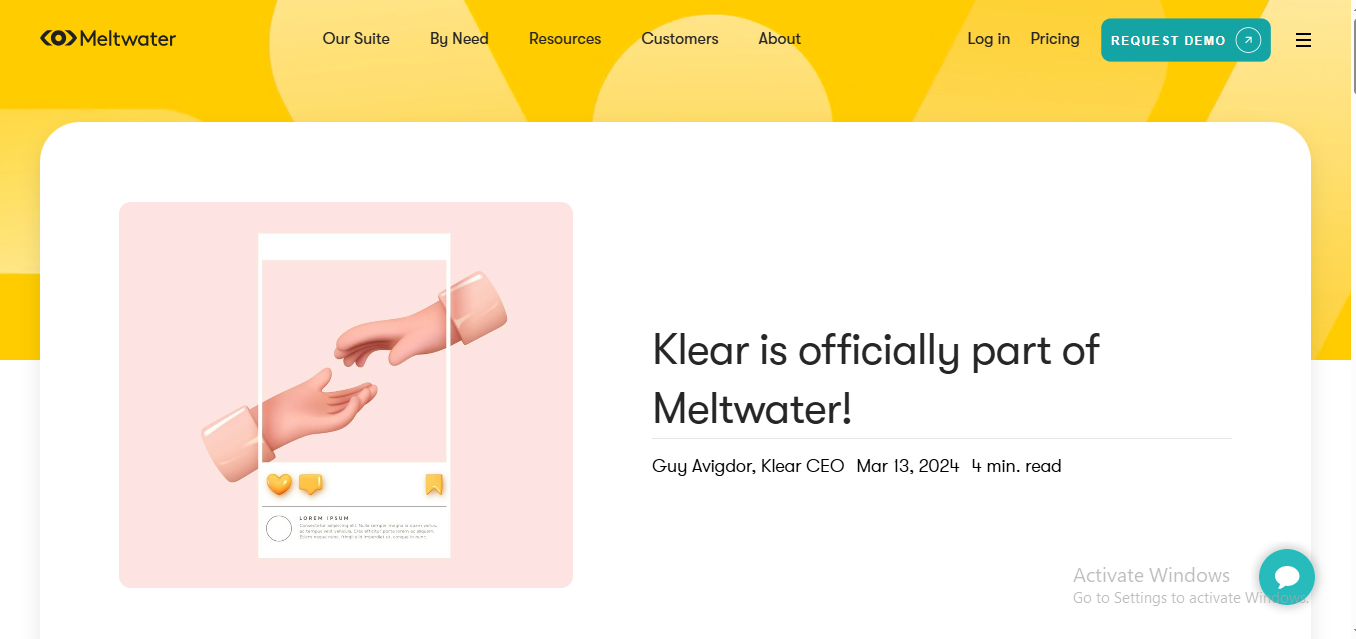
If you need a platform that helps you discover, analyze, and manage influencers with detailed insights, Klear has got your back.
What I Loved:
-
Advanced Analytics: Klear’s analytics are top-notch. You can track the performance of influencers down to the nitty-gritty details, which is awesome if you’re trying to optimize campaigns.
-
Influencer Search: The search feature is fantastic. You can filter influencers by location, category, audience size, and engagement rate, making it easy to find the perfect match.
What I Didn’t Like:
-
A Little Overwhelming for Beginners: Klear offers a lot of features, which is great, but if you’re new to influencer marketing, it might feel a bit overwhelming at first.
-
Pricey for Small Brands: Like some of the bigger platforms, Klear can be pricey. It’s definitely built for brands with a bigger budget.
Pricing:
-
$$$$: More of a high-end tool that’s great if you’re serious about influencer marketing and have the budget for it.
22. Brandbassador
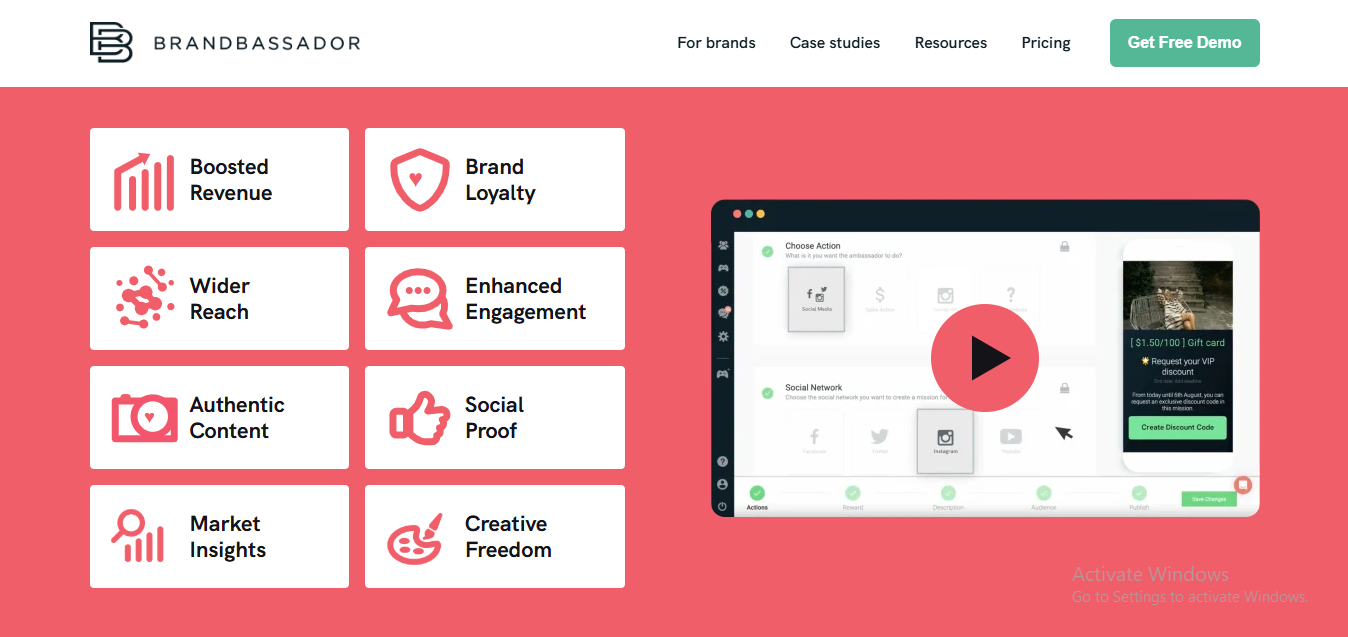
Brandbassador is all about turning your influencers into ambassadors. The platform focuses on building long-term relationships that really pay off.
What I Loved:
-
Ambassador Program: Brandbassador’s ambassador program lets you engage with your influencers over the long term, which is awesome for creating brand loyalty.
-
Performance-Based: The platform allows you to pay influencers based on performance, meaning you only spend when you see results. That’s a win for any marketing budget.
What I Didn’t Like:
-
Less Customization: While the ambassador model is great, the platform doesn’t offer as much flexibility when it comes to customizing campaigns or influencer strategies.
-
Not as Many Tools: Compared to others like Klear or Later, Brandbassador is a bit more basic in terms of the tools and analytics it provides.
Pricing:
-
$$: A great middle-ground option, especially if you’re focusing on building ambassador programs and rewarding influencers based on their performance.
23. Shout UGC
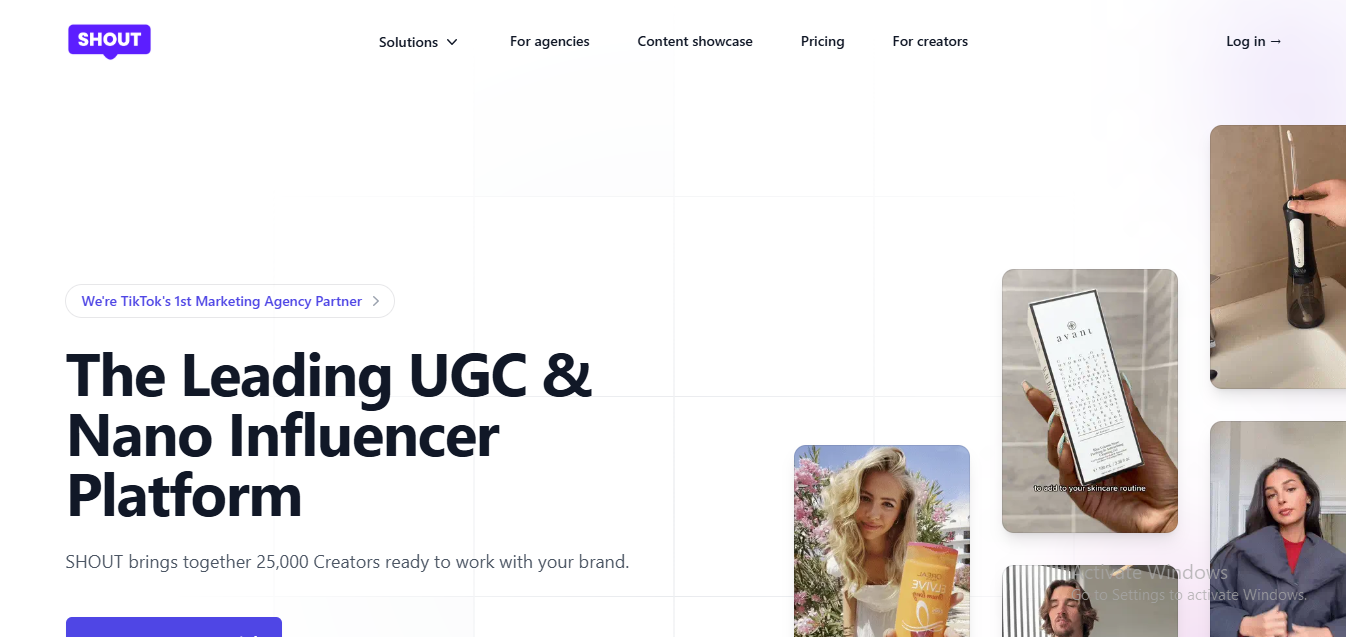
If you’re all about User-Generated Content (UGC), Shout UGC is your go-to platform. It connects brands with creators who focus on producing content that resonates with their audience.
What I Loved:
-
Focus on UGC: If your brand thrives on authentic, user-generated content, this platform is perfect for you. It’s all about real-world content that looks natural and relatable.
-
Efficient Campaign Management: Managing campaigns is simple. You can track and approve content easily and make sure everything’s on-brand.
What I Didn’t Like:
-
Limited to UGC: If you need a more traditional influencer marketing campaign with sponsored posts, Shout UGC might not be the best fit.
-
Smaller Influencer Pool: The focus on UGC means the platform might not have as many big-name influencers as others.
Pricing:
-
$$: A reasonable choice for brands looking to build authentic UGC campaigns on a budget.
24. CreatorIQ
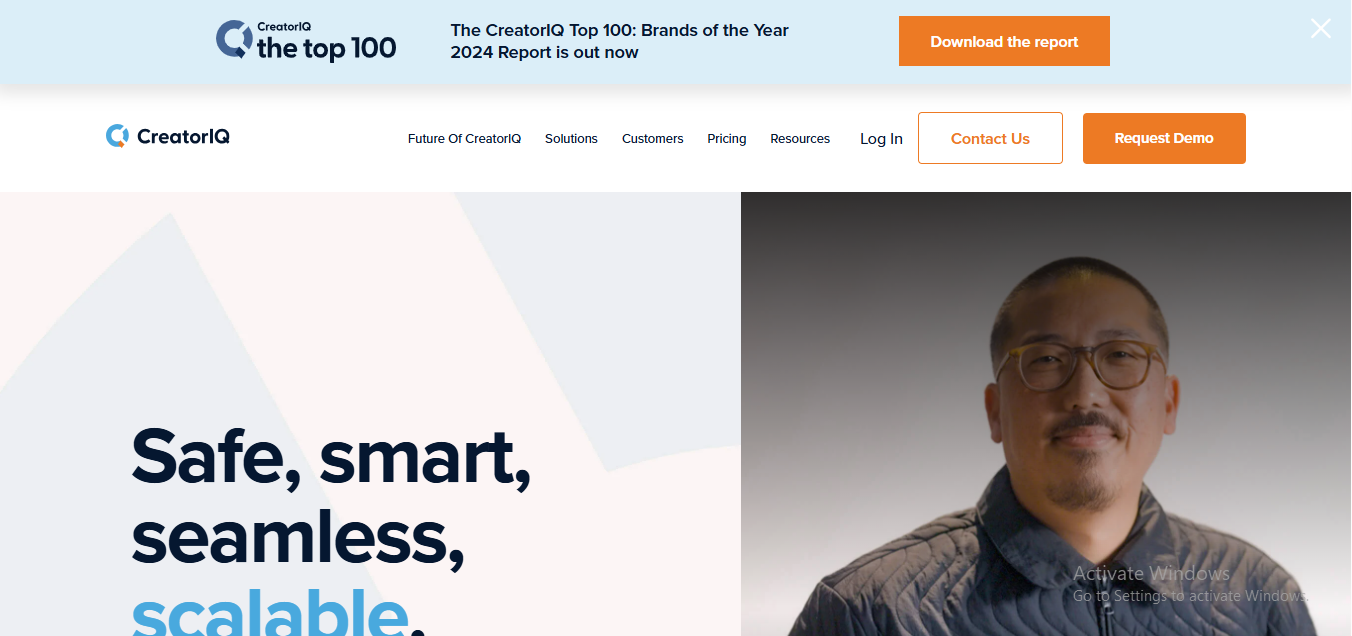
If you’re looking for a powerful, data-driven platform that manages everything from influencer search to performance analytics, CreatorIQ has you covered.
What I Loved:
-
Data-Driven Insights: The platform offers insane analytics, allowing you to track everything about your influencer campaigns and tweak things as you go.
-
Seamless Integration: CreatorIQ integrates really well with other platforms like Shopify, making it super convenient if you’re running multiple campaigns at once.
What I Didn’t Like:
-
Too Complex for Beginners: CreatorIQ is robust, but it can feel like there’s a lot going on. If you’re new to influencer marketing, it might take a bit of time to figure out.
-
Pricey: Like many of the enterprise-level platforms, CreatorIQ isn’t cheap, which can be a deal-breaker for smaller brands.
Pricing:
-
$$$$: This one’s for brands that are serious about influencer marketing and have the budget to back it up.
25. InfluencerMarketing.ai
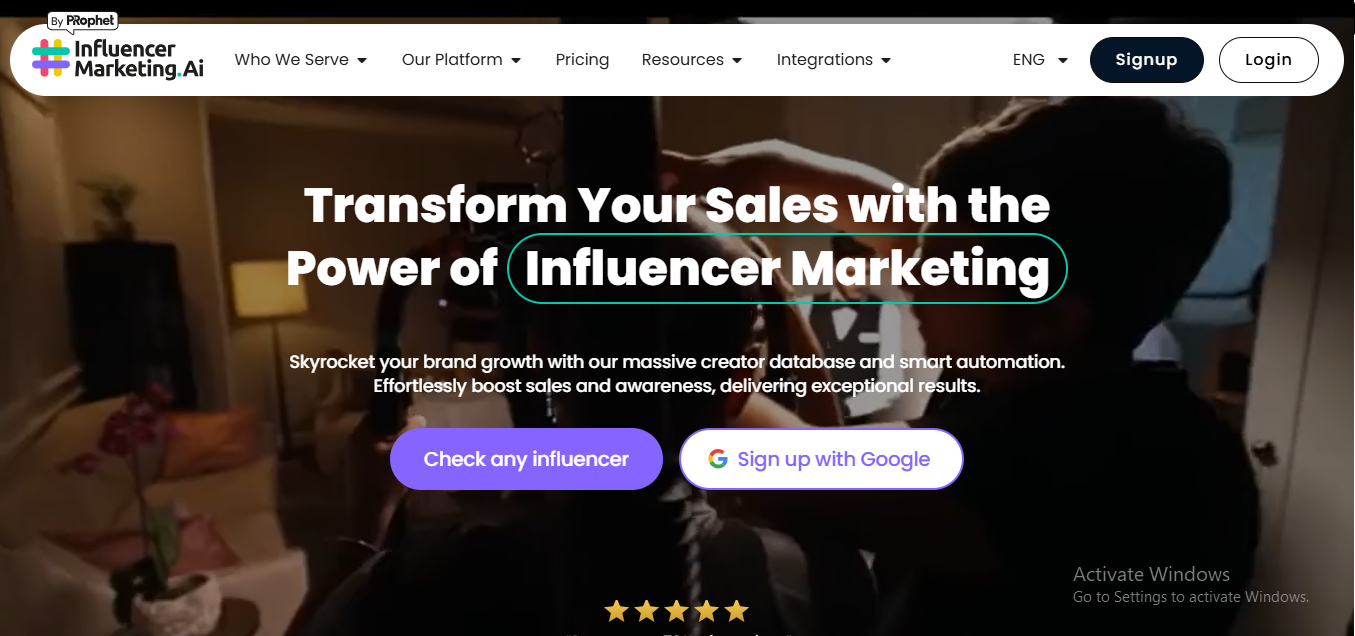
Now this one surprised me—InfluencerMarketing.ai is like that cool underdog in a coming-of-age movie who suddenly shows up to prom lookin’ fly.
What I Loved:
-
Smart search with AI – I legit found niche micro-influencers in minutes. Yoga moms? Cat-tokers? Travel couples? Boom. Found.
-
All-in-one vibe – You can do outreach, manage contracts, track ROI, and even create briefs—all without switching tabs 600 times.
What I Didn’t Love:
-
UI could be sleeker – The dashboard design feels a little stuck in 2018, tbh.
-
Limited integrations – Compared to the big dogs like CreatorIQ or Meltwater, this one doesn’t connect with as many tools.
Verdict:
For the price and automation features? It’s a total steal for startups, small agencies, or solo creators trying to scale campaigns without blowing cash.
26. Traackr
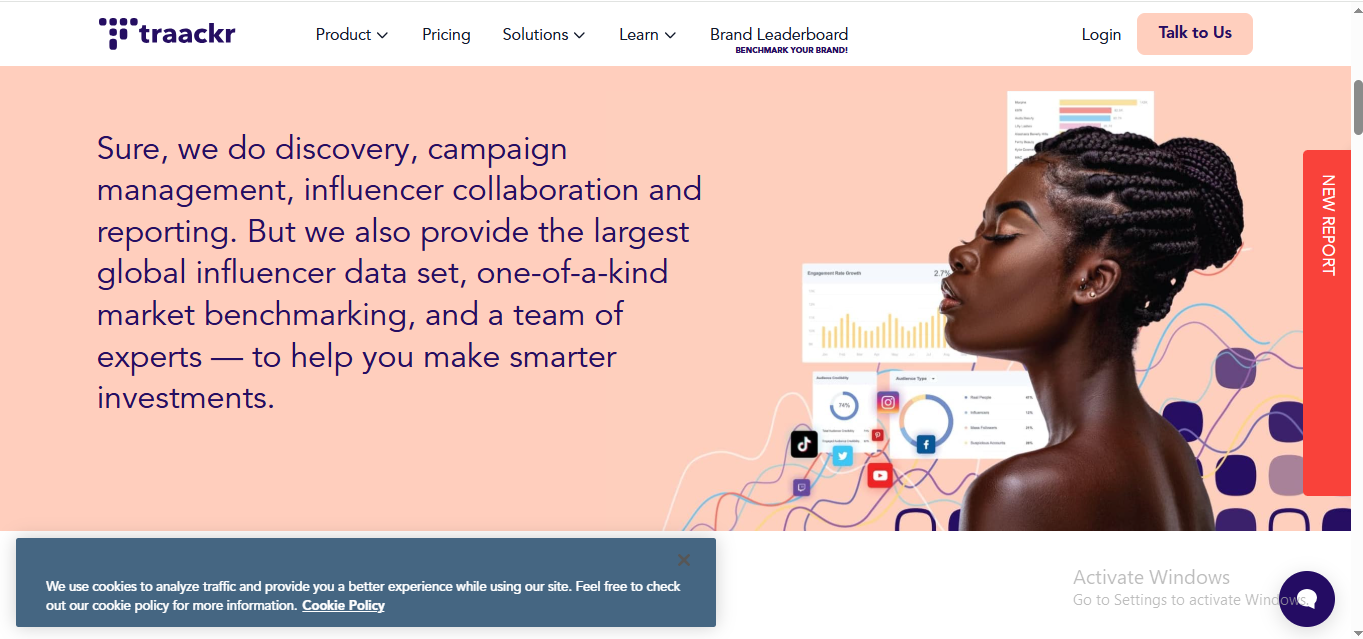
Traackr is like that mysterious character in every crime series who knows everything. It’s not flashy—but oh boy, it’s smart.
What I Loved:
-
Influencer relationship tracking – It actually tracks long-term relationships with creators. You can see who’s worked with you, how many times, and how they performed over time.
-
Strong on compliance – This is huge. Especially if you’re doing international campaigns and want to stay legally sound with disclosures and all.
What Missed the Mark:
-
Not super creator-friendly – This is more built for brands and agencies, not influencers themselves. The UI isn’t made for two-way vibes.
-
Pricey and enterprise-focused – Like, if you’re not managing 10+ campaigns monthly, you might not be using it to its full potential.
Verdict:
Perfect if you’re a data nerd or managing multiple clients. If you just want to send out a few free lip glosses and track clicks… probably not for you.
27. Upfluence
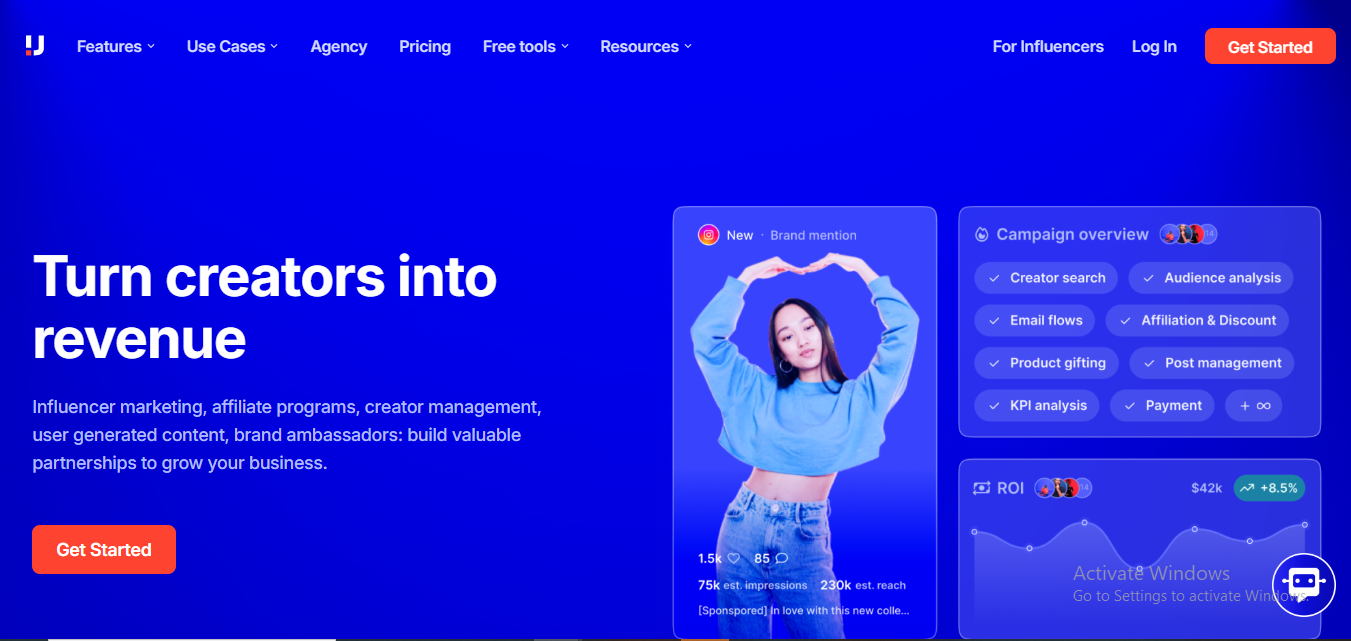
Now we’re talking! Upfluence is like the golden retriever of influencer platforms—friendly, eager to please, and honestly just works.
What I Loved:
-
Influencer database on steroids – There’s like 4+ million creators in their system. Search by engagement rate, platform, follower count, and even keywords in bio. 👏
-
eCommerce integrations – Shopify, WooCommerce, Zapier—you name it. You can even turn customers into brand ambassadors.
What Gave Me Pause:
-
Initial onboarding is meh – I had to poke support a couple of times during setup. Not the worst, but not seamless.
-
Mid-tier analytics – Reporting is decent but not as beefy as CreatorIQ or Traackr.
Verdict:
Fantastic all-rounder. Especially if you run an ecom brand and want to automate the whole “gifted collab > content > track sales” flow. Solid choice for mid-size budgets.
28. Meltwater
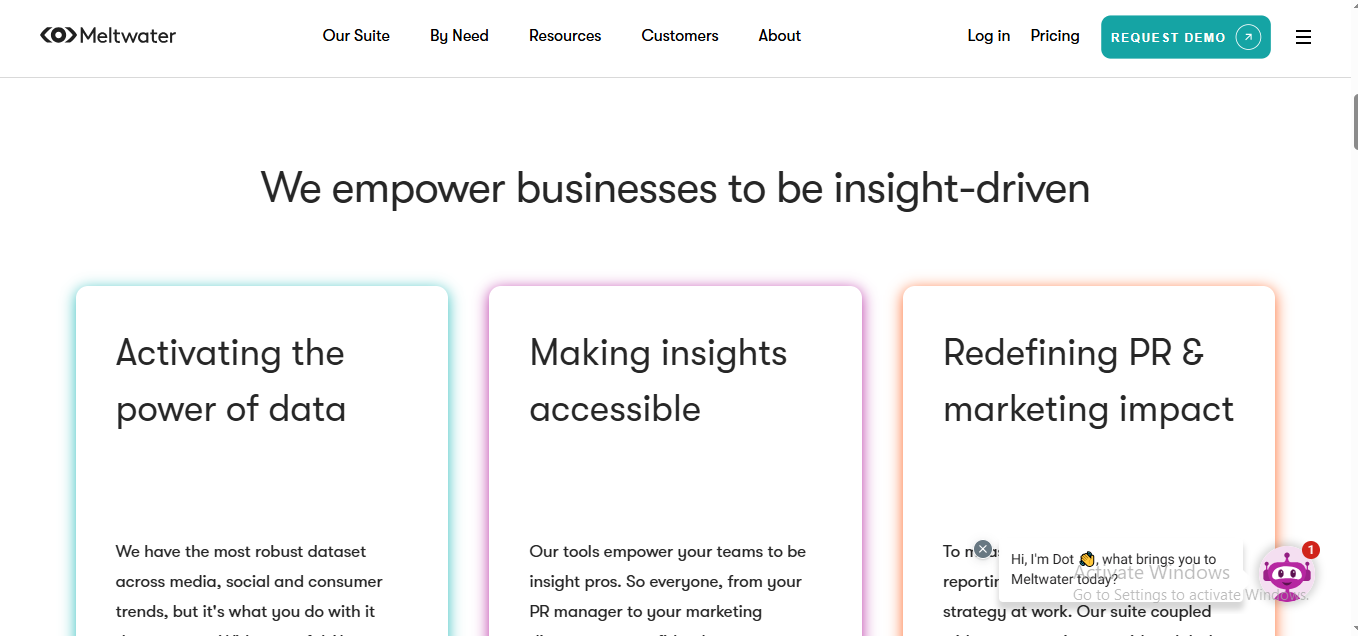
Ah yes, Meltwater—the OG media monitoring platform that dipped its toes into the influencer pool. And guess what? They’re actually doing a solid job.
What I Loved:
-
Media + influencer coverage – You can track brand mentions across the web and social media, which is lowkey amazing.
-
Global influencer network – Want to hit up creators in Dubai, Berlin, or Buenos Aires? Meltwater’s got connections everywhere.
What Could Be Better:
-
Clunky UX – It sometimes feels like they stitched a bunch of different platforms together. Can be overwhelming.
-
Influencer features aren’t the main focus – You’re using a Swiss Army knife when all you need is a steak knife.
Verdict:
If you’re already using Meltwater for PR or media monitoring, adding influencer tools is a no-brainer. But if you’re only focused on creators, other platforms are slicker.
29. The Social Cat
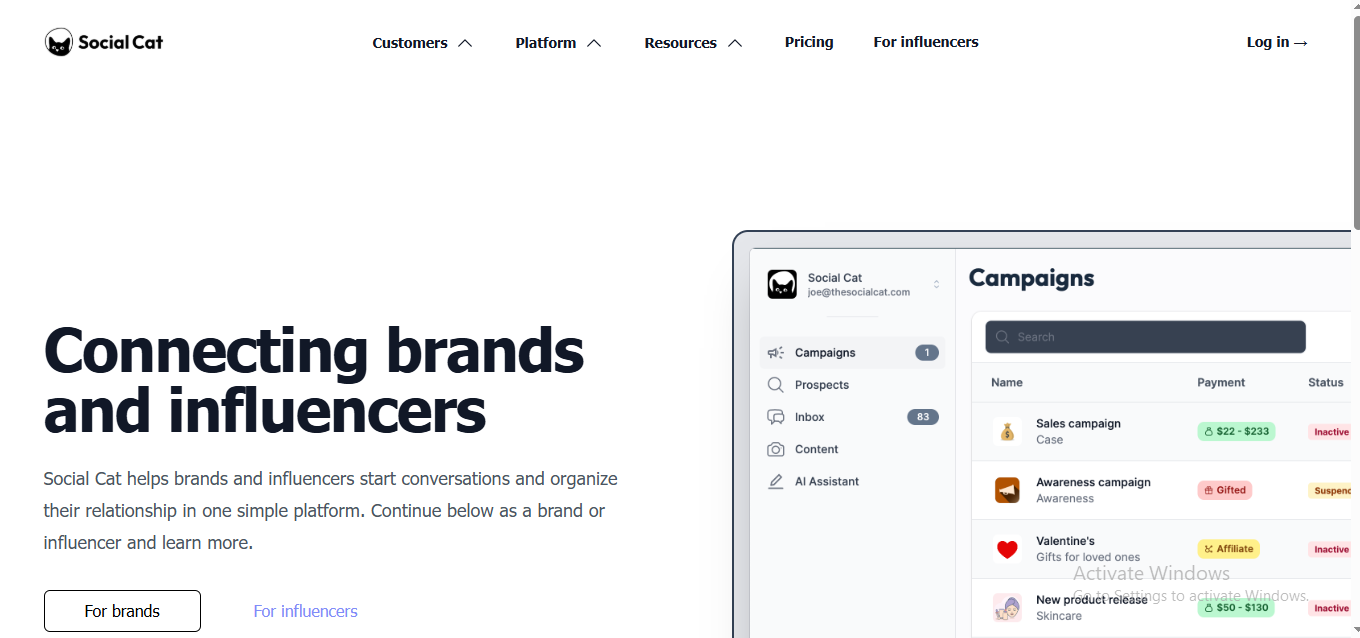
OMG I loved this one—The Social Cat is cute, nimble, and made for small biz peeps who just want to get content and bounce.
What I Loved:
-
Super easy onboarding – You fill out a little quiz, and it auto-matches you with creators. Kinda like Tinder but for brands and influencers.
-
Affordable AF – Seriously, this is one of the most budget-friendly options out there. No long-term contracts, just pay per collab.
What I Didn’t Love:
-
Limited features – No fancy reporting or integrations. Just pure, grassroots UGC vibes.
-
Mostly micro-influencers – Which is great for some brands, but if you want big reach, this isn’t the platform for it.
Verdict:
Perfect for small businesses, Etsy shop owners, or marketers just dipping their toes into influencer marketing. Feels like the indie rom-com of platforms.
- Best Datanyze Alternatives for 2025 - April 24, 2025
- Best Hunter.io Alternatives for 2025 - April 22, 2025
- Best Lead411 Alternatives for 2025 - April 22, 2025



